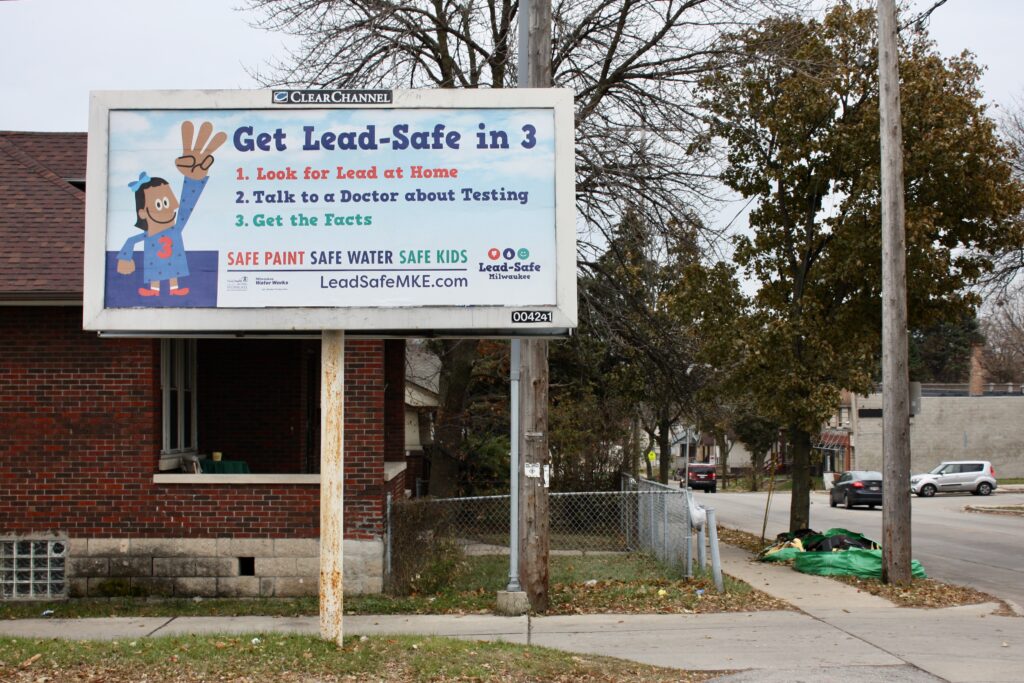
By Matt Martinez, Milwaukee Neighborhood News Services, through the Institute for Nonprofit News network
The city is significantly behind in its goal to replace 1,100 lead pipes by the end of the year, exacerbated in part by the ongoing pandemic, Milwaukee officials say.
As of Aug. 10, only 333 lines have been replaced, Milwaukee Water Works Superintendent Karen Dettmer said.
The lead service replacement project began four years ago after officials found an unsafe number of lead laterals, or service lines, connecting water mains to houses and businesses.
The lead from these lines leaches into tap water and can have unhealthy effects on those who drink it, especially developing children.
The project replaces lead pipes with copper ones.
During a July 15 meeting of the Milwaukee Common Council’s Public Works Committee, Ald. Milele Coggs said the rate of replacement is too slow. Coggs called for more options for residents.
“My goal is to get to a point where you don’t have to wait until stuff is disrupted to be able to replace your lead laterals,” Coggs said.
Dettmer said her department did not feel comfortable sending workers out during the early part of the pandemic, because so much about the virus was unknown at the time. Officials, she said, did not want to put workers or residents at risk.
The process of replacing the lines requires multiple people entering a home or business.
Because of the risk of exposure, Dettmer said, some residents did not want workers entering their homes.
While the pandemic did slow the program, Dettmer said workers have made significant progress at child care centers that have been closed during the shutdown.
“It’s not a simple answer as far as moving forward with lead service line replacement,” Dettmer said. “If we had an infinite amount of funding, it would be a much simpler answer.”
Dettmer said the price of replacing lead service lines has increased, and the city’s budget will face constraints in the future.
Dettmer is proposing a new plan that would evenly distribute tax rates to help fund service line replacements. She said 300 water mains in the city will be replaced this year.
With 70,000 lead service lines in the city, it would take roughly 70 years for the program to reach its goal.
For Robert Penner, a member of Get The Lead Out coalition, that’s too long. The coalition is made up of residents and community organizations.
Penner cited Lansing, Michigan, as the “gold standard” for lead replacement. He acknowledged that it is a smaller city than Milwaukee. Lansing had to replace 12,150 pipes as opposed to Milwaukee’s 70,000.
“We see that as absolutely unacceptable,” Penner said. “We’ve seen in other cities that this type of project can be accomplished in a few years.”
This article, first published in Milwaukee Neighborhood News Service, is republished here through Great Lakes Now’s membership in the Institute for Nonprofit News, a network of more than 200 nonprofit newsrooms across the U.S., working to strengthen the sources of trusted news for thousands of diverse communities.
Read more lead and drinking water news on Great Lakes Now:
Court: Flint class-action can proceed over lead in water
Drinking Water News Roundup: lead in Pittsburgh, NY stream protection bill
City of Buffalo lead poisoning plan missing key elements
Featured image: Milwaukee’s lead service replacement project began four years ago after the city found an unsafe number of lead laterals, or service lines. (Milwaukee Neighborhood News Service file photo by Jabril Faraj)




